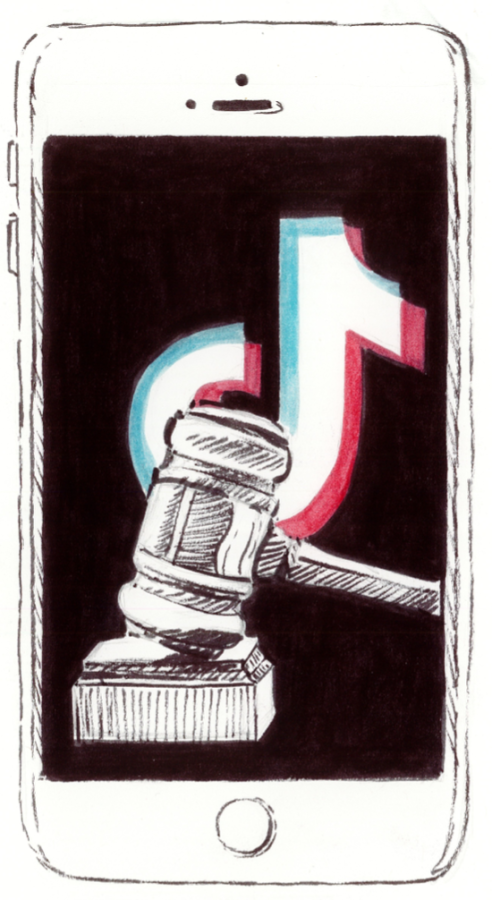A potential TikTok ban: Congress poses the question of a national security threat
People argue whether or not TikTok is stealing people’s information, and if the social media app is doing more harm than good.
May 2, 2023
On March 23, Shou Zi Chew, CEO of the popular app TikTok, sat before Congress to impart reasoning on why the app is not a threat to the privacy of Americans. Despite five hours of back and forth from committee members and Chew answering all questions to high standards, the members of Congress could not be swayed from their original opinion: TikTok is just a facade for the Chinese government’s intentions of spying on Americans.
Hearing that TikTok could be banned isn’t news, as users in the past have fallen into a crisis believing that under the Trump administration, their app would be stripped away. Those with a large following bid farewell to their supporters, and encouraged them to keep the income flowing and likes piling through other social media apps. However, people, mainly influencers, were pleasantly surprised when the day of impending doom never came.
What once was just talk and rumors transitioned into a real movement for the government to ban the app for good. At the Congressional meeting on Capitol Hill, Chew realized that most of the government’s concern was based on speculation, and that there was no real evidence presented to make a solid case for a ban.
Congress is worried that TikTok is collecting data from over 150 million U.S. users and is appointing the app as a national security risk. Chew tried to assuage the lawmakers concerns by pointing out that data will be stored in the U.S. and not able to be accessed by the Chinese government, but they didn’t buy what he was telling them.
Jake Mason, a junior, believes TikTok should be banned because he believes that a lot of major companies are taking personal information from and selling it to advertisers. “It’s a security breach, especially for a Chinese company. With them being the global superpower they are right now, it’s a threat,” he said.
A democratic representative from Delaware named Lisa Blunt Rochester said that lawmakers were hoping to have some of their concerns alleviated after the congressional meeting. Rochester was also concerned that the company was collecting data from young people. According to The New York Times, she said, “I think that really summarizes why you see so much bipartisan consensus and concerns about your company, and I imagine that’s not going away anytime soon.”
The concerns of the people are not only reliant on privacy, but the spread of misinformation, addiction, and young exposure. Ana Castillo, one of the Mental Health at Masters co-chairs, had TikTok for several months before she deemed it unhealthy and deleted the platform.
“I was seeing the constant spread of misinformation from what I knew wasn’t an accurate source. I also would see similar videos pop up on my page to the ones I liked, which is when I knew the algorithm was more intense than other apps,” she said.
Although Castillo thinks TikTok should be banned because of its unhealthy effects, she doesn’t see it as a national security issue. “I think calling it a privacy risk is a stretch, considering they don’t have any evidence,” she said.
Some states are currently working on putting bans or restrictions, but Montana has been the first to successfully pass a bill that bans TikTok. This means it would be illegal to download the app within the state, with consequences extending to $10,000 per day if the bill is approved, starting in January of 2024. Brooke Oberwetter, a TikTok spokesperson, is intent on fighting for the people in Montana to be able to keep the platform, especially for those who make a living off of it.




